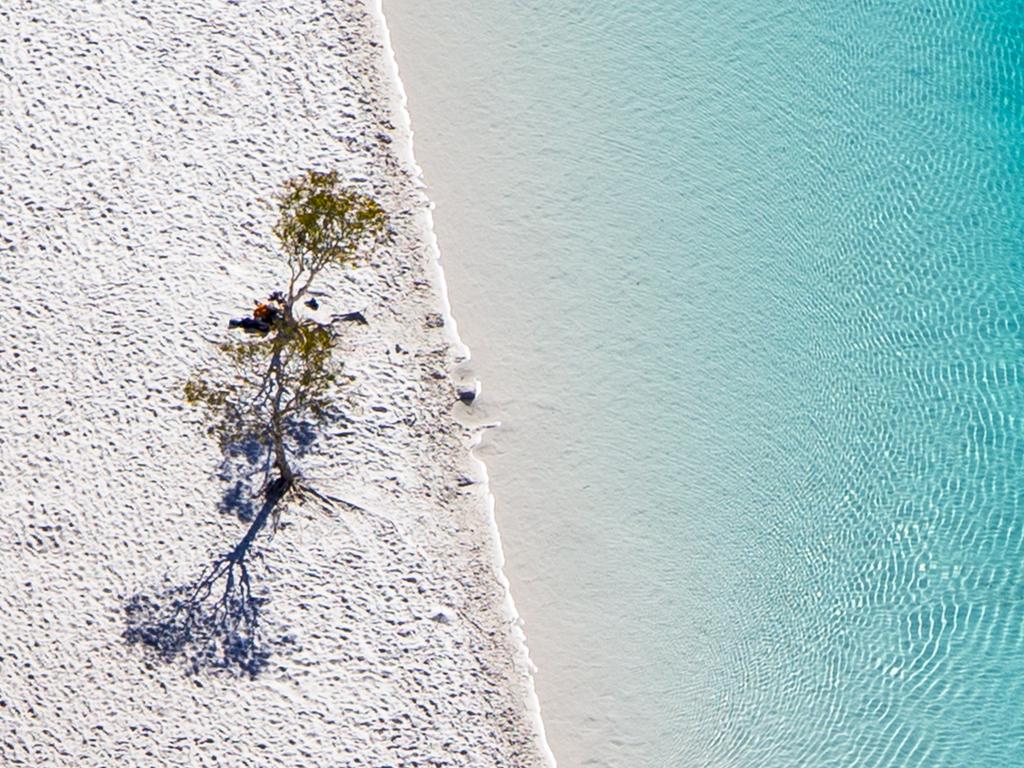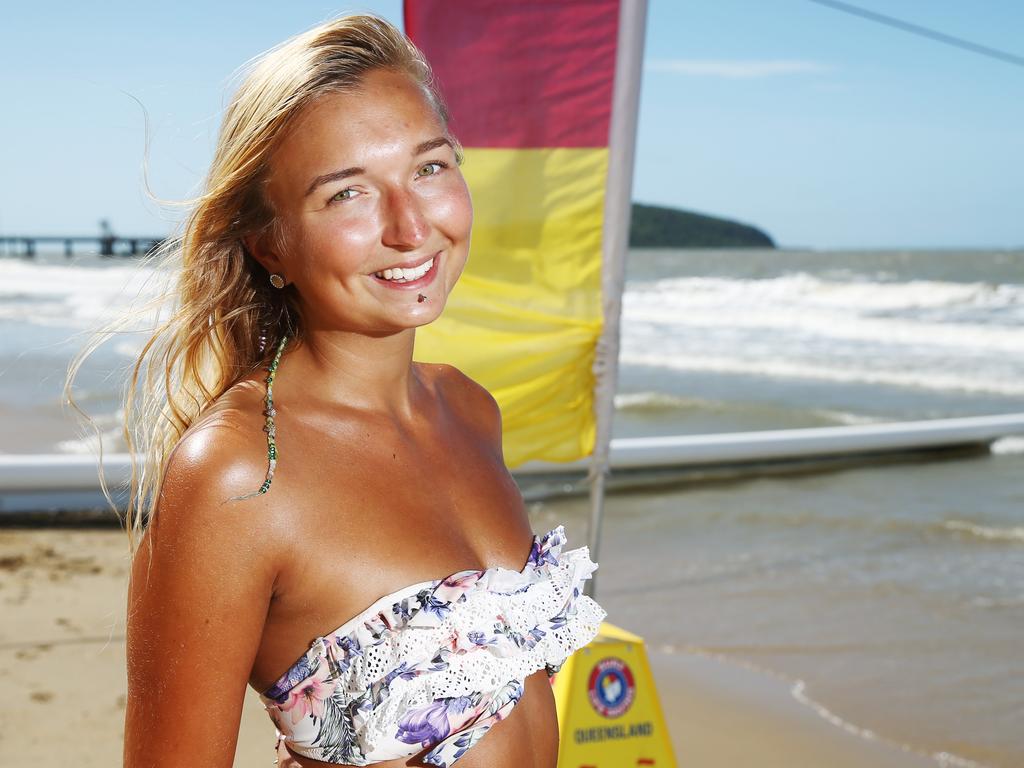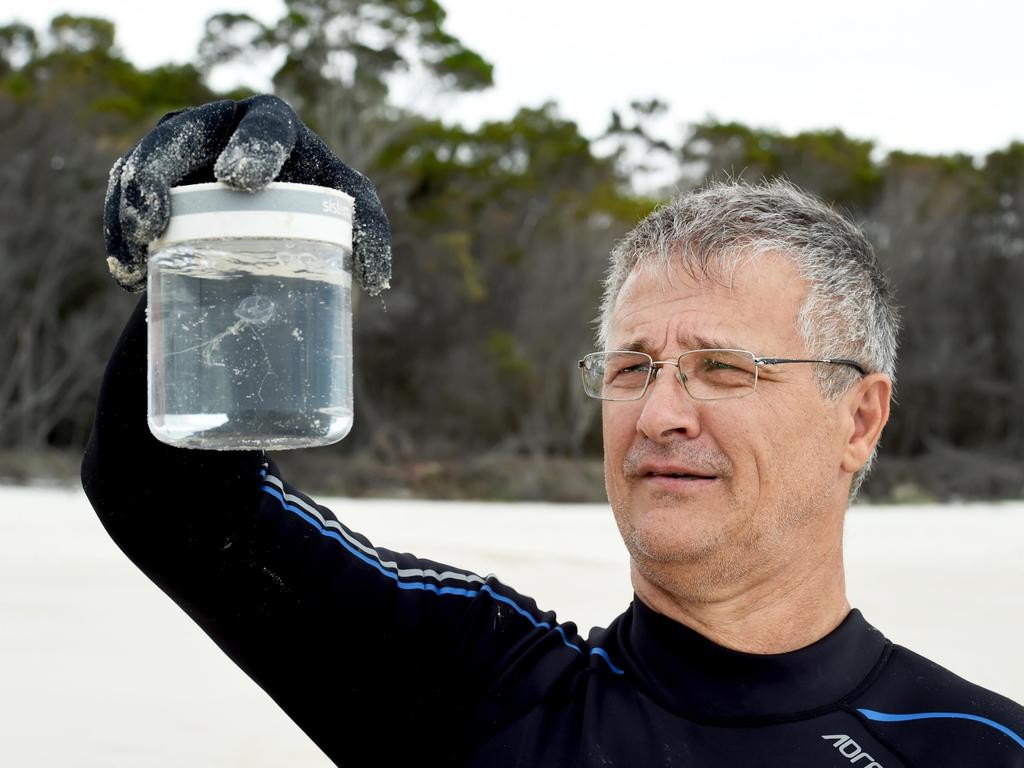Queenslanders warned as deadly stingers move in on beaches
A third Irukandji jellyfish sting this week has prompted the closure of beaches in Queensland, leaving holiday-makers disappointed.
A little boy has been flown to hospital for a suspected Irukandji jellyfish sting, amid fears the deadly animal is lurking in Queensland waters.
The boy’s sting at Fraser Island is the third this week, but further north beaches at Cairns are also closed lifeguards caught three Irukandji on Tuesday.
A helicopter was called to the Queensland island on Wednesday after reports the primary school aged boy was stung swimming on the western shoreline about 1pm.
He was stabilised before being flown to Hervey Bay Hospital for further treatment.
Irukandji are a risk over summer, from November through until May/June, with that risk heightened in far northern waters.

Beaches north of Cairns could remain closed for several days because of the warm conditions.
The Cairns Post reports all beaches from Ellis Beach to Holloways Beach were initially closed on Tuesday afternoon after lifeguards caught the stingers at Kewarra Beach and Yorkeys Knob.
Other popular beaches including Palm Cove, Clifton Beach and Trinity Beach are closed.
Surf Lifesaving Queensland NQ regional manager Rob Davidson told the newspaper all swimmers should stay out of the water while beaches were closed and red flags were flying.
Lifeguards will continue stinger drags to identify any risks.
“If the conditions haven’t changed, the risk of the Irukandji still being in the water and around the local beaches is very high,” he told The Cairns Post.
“We’re always going to err on the side of caution. Patron safety is the most important thing to us.”

RACQ LifeFlight Rescue is also urging Queensland holiday-makers to take extra precautions when swimming at the state’s beaches.
RACQ LifeFlight Rescue chief medical officer Dr Allan Mackillop said before heading to the beach, people should educate themselves about what to do if stung.
“Always have vinegar on you,” Dr Mackillop said.
“The use of vinegar, applied to the impacted area and then gently remove the tentacles once the vinegar has been applied.”





